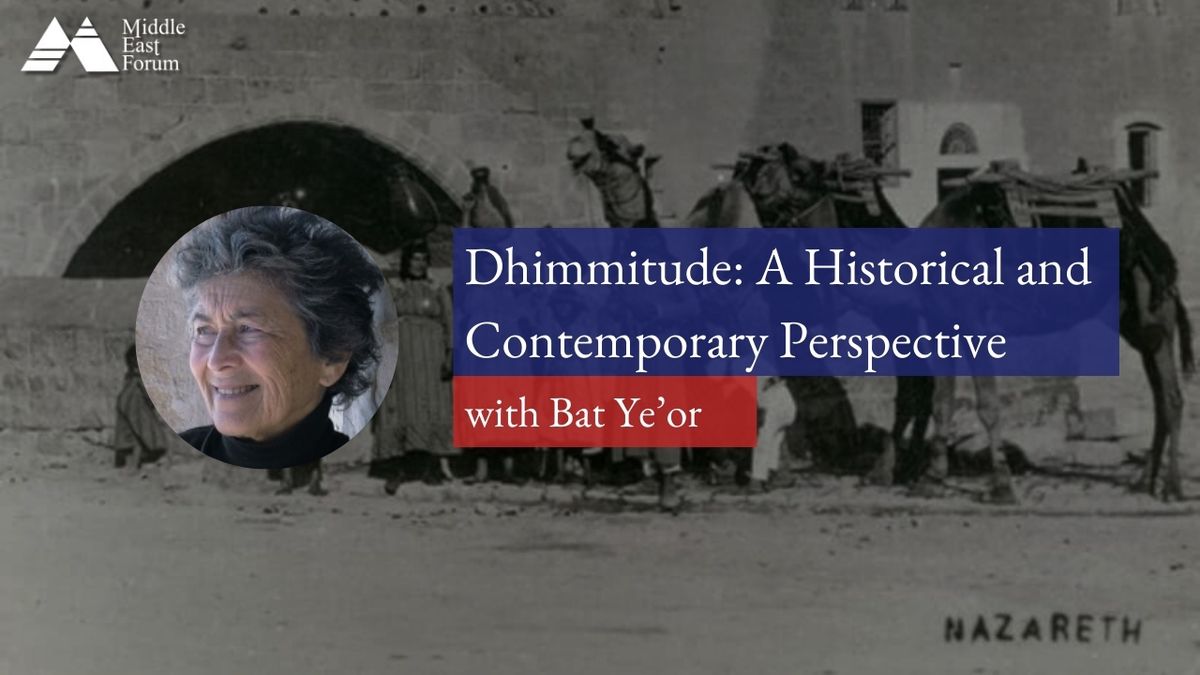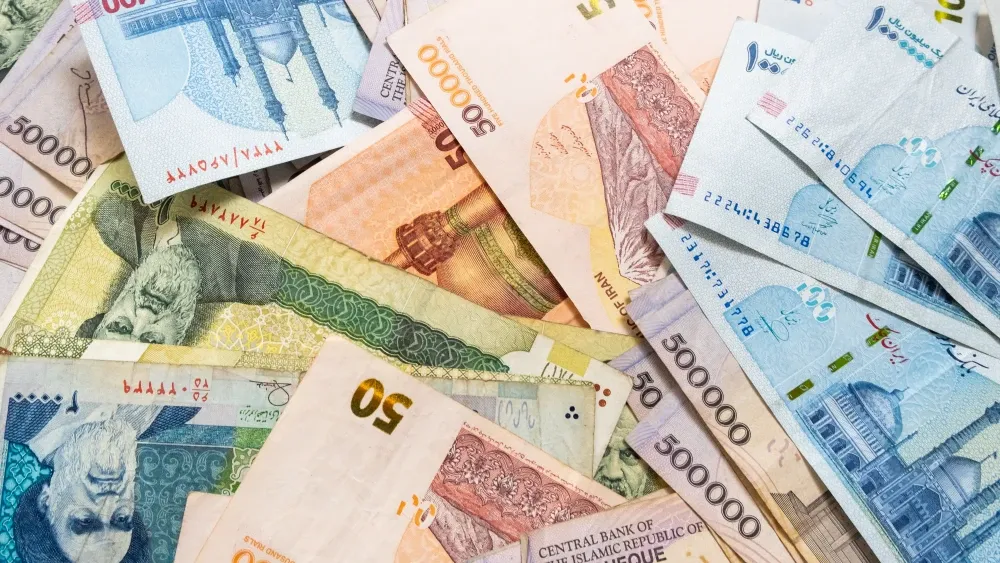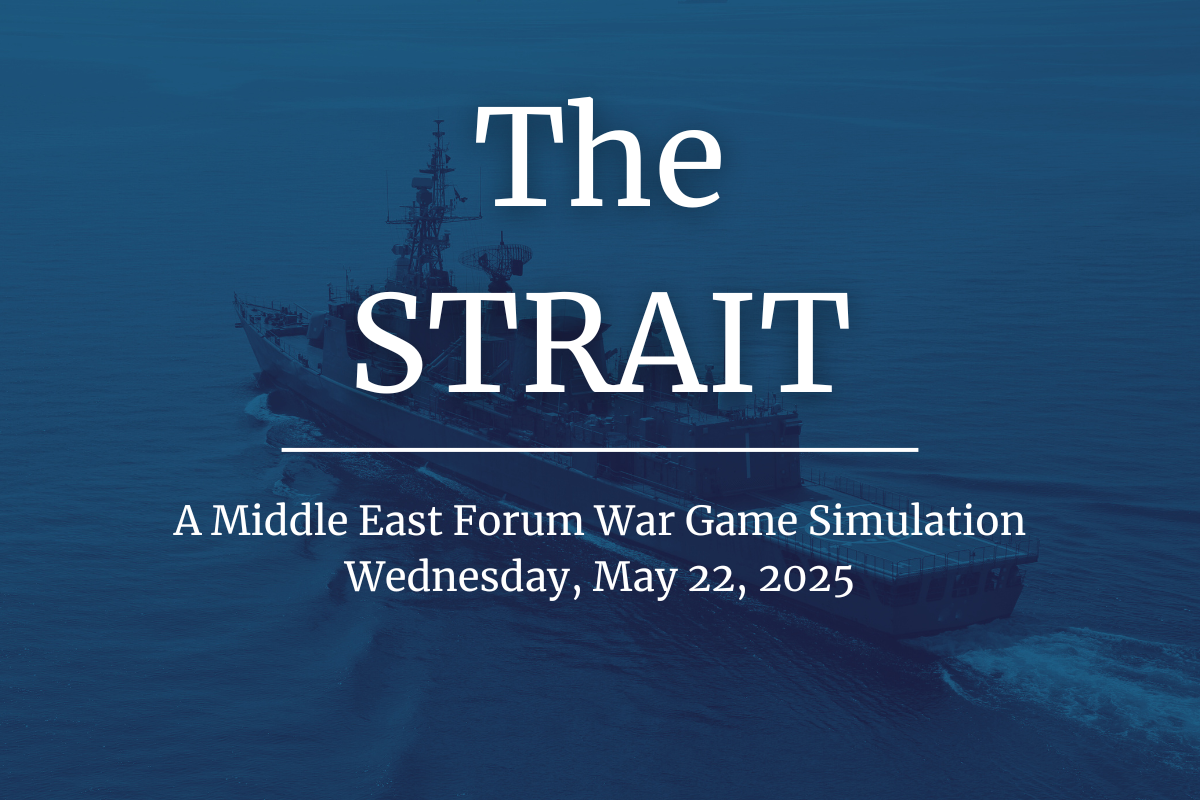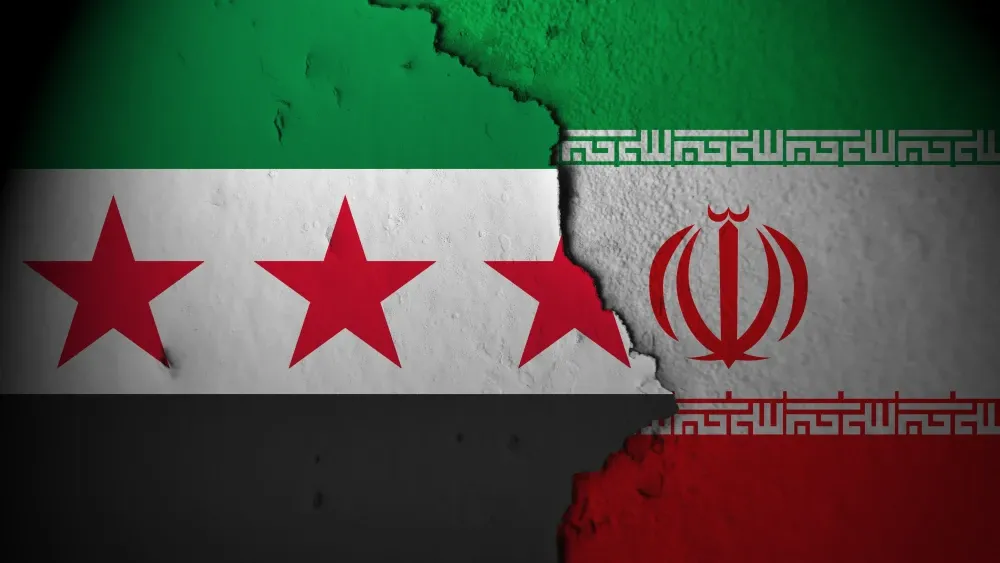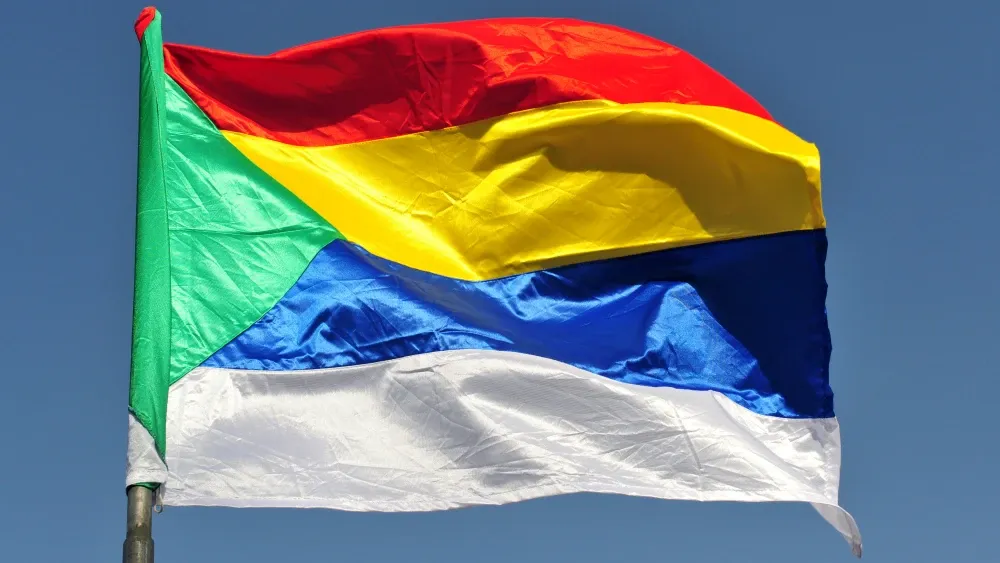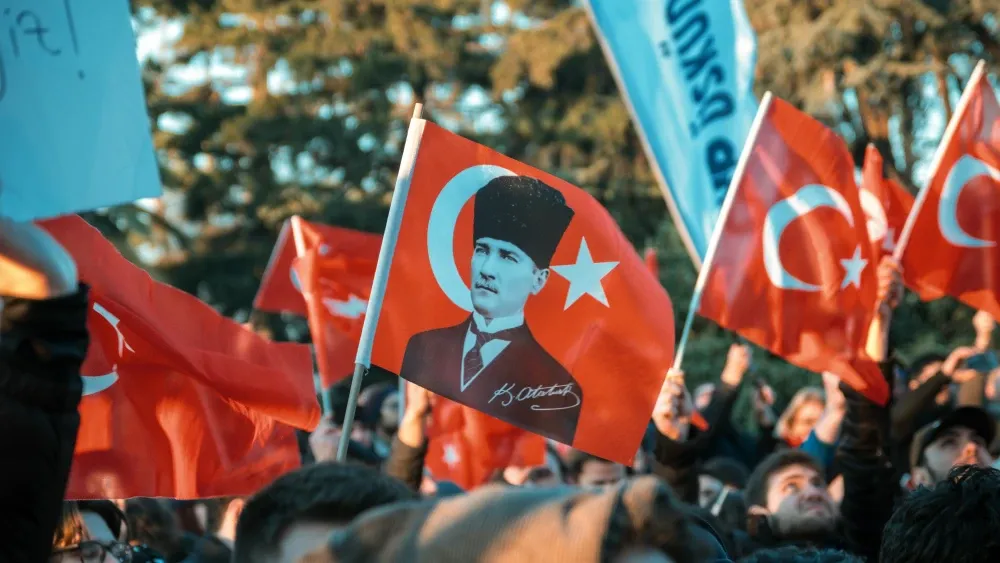| ||
 | ||
| Qatar's $40 Billion U.S. Spending Spree; Iran in Lebanon and Syria; Latest on the Druze and the Kurds By Winfield Myers ● May 13, 2025 Smart Brevity® count: 6 mins...1645 words MEF’s newest report, “America for Sale: Qatar’s $40 Billion Spending Spree Buys Influence and Control of Elite Institutions,” is the first attempt to empirically quantify Qatar’s strategic investments in the U.S. marketplace. Authored by Benjamin Baird, it is a must-read for lawmakers and citizens concerned about the sale of key assets to a terror-sponsoring nation. Michael Rubin argues that Iran should be made to pay for wrecking Lebanon, while Loqman Radpey warns that the Islamic Republic’s hold on Syria, while greatly weakened, is not lost. We end with articles on the Druze, who are again caught in the middle of other people’s wars, and the increased role Turkey’s Kurds are set to play in the 2028 elections. | ||
MEF Report Uncovers $40 Billion Qatari Spending SpreeThe Middle East Forum’s report, "America for Sale," lays bare Qatar's aggressive $40 billion campaign to control U.S. institutions, posing a dire threat to national security. Why it matters: Qatar's strategic investments penetrate critical sectors, risking U.S. sovereignty and security.
The stakes: Qatar's financial maneuvers are akin to a Trojan horse, designed to subtly erode U.S. independence while bolstering its own geopolitical clout.
Go deeper: MEF warns that U.S. policymakers must recognize Qatar as a foreign adversary, akin to Iran or North Korea.
Bottom line: The U.S. must act decisively to protect its institutions from Qatar's expansive influence, prioritizing national security over foreign payoffs. Click the links to read the press release and the full report. | ||
ICYMI:"Dhimmitude: A Historical and Contemporary Perspective" with Bat Ye’orIn a world facing a resurgence of jihadist ideologies, the concept of dhimmitude—rooted in Sharia law and tied to historical jihad—casts a long shadow over modern societies. From blasphemy laws stifling free speech to the erosion of Judeo-Christian cultural identities, dhimmitude’s mechanisms are increasingly visible in the West. Unexpected alliances between jihadist movements, the anti-Christian Left, and antisemitic factions further complicate this global ideological war. How do these historical patterns shape today’s conflicts? What’s at stake for the future of Western civilization and global stability? Bat Ye’or, originally born in Cairo, found asylum in London as a stateless refugee in 1957 and became British on marriage, settling in Switzerland. Since 1971 she has written a number of books and scores of articles on non-Muslims under Islam, adopting a biblical pen name, Bat Ye’or, or ‘Daughter of the Nile’. Her first essay, Les Juifs en Egypte (1971) was followed by a major study, The Dhimmi: Jews and Christians under Islam (English/1985). This is still an essential introduction to her second major work, The Decline of Eastern Christianity under Islam: From Jihad to Dhimmitude (English/1996) that confirmed her reputation as a pioneer thinker in this field. Then came Islam and Dhimmitude: Where Civilizations Collide (2002) which examined the trend toward dhimmitude in the 20th century and facilitated a serious assessment of the traditional ideology of Jihad. Her book, Eurabia: The Euro-Arab Axis (2005) provided an understanding of the gradual transformation of Europe into Eurabia, a cultural and political appendage of the Arab/Muslim world. Niall Ferguson praises: “No writer has done more than Bat Ye’or to draw attention to the menacing character of Islamic extremism.” She studied at University College London and the University of Geneva. To watch the full podcast, click here. | ||
Seize Iranian Money in Qatar to Fund Lebanese ReconstructionThe Islamic Republic has long embraced a policy of plausible deniability. Iran attacks via proxy to avoid accountability. Why it matters: Tehran's actions lead to destruction and chaos, with Lebanon paying the price as Hezbollah serves Iran's agenda over Lebanese interests.
The backdrop: Iran's creation and support of Hezbollah are well-documented, with former ambassadors admitting to training fighters in Iran and deploying them to Lebanon.
Go deeper: Lebanon's new leadership, including President Joseph Aoun, seeks to rebuild amid overwhelming challenges and requires substantial international support.
The stakes: Leveraging Iran's own funds to rebuild Lebanon could shift the balance of power, weakening Iran's proxy stronghold and fostering regional peace. To read the rest of this article, click here. | ||
The STRAIT: A Middle East Forum War Game Simulation - Wednesday, May 22While registration for our 2025 policy conference, Statecraft Reimagined, has closed, there is still time to register for THE STRAIT, a one-day war game simulation hosted by the Middle East Forum on May 22, 2025. This immersive event places you in the heart of a hypothetical crisis in theStrait of Hormuz—one of the world’s most strategically vital maritime chokepoints. Why Attend? Realistic Scenario: Confront cyber threats, naval standoffs, and diplomatic showdowns in a setting that reflects modern-day regional tensions.Expert Leadership: MEF staff, backed by a team of regional and security specialists, will guide you through this high-stakes exercise.Hands-On Experience: Hone your crisis management, negotiation, and decision-making skills in real time.Networking: Engage with policymakers, analysts, and thought leaders who share a passion for Middle East affairs and global security. What to Expect: Confidential Briefings: Before the event, you’ll receive exclusive background materials outlining the forces at play—from Iran’s growing asymmetric capabilities to Saudi Arabia’s advanced military power.Interactive War Game: Take on the role of a key actor—whether it’s a regional state, a global superpower, or a critical stakeholder—and decide how to respond as tensions mount.Strategic Outcomes: Thesimulation’s outcome rests on your decisions. Will you negotiate a peaceful settlement, or spark a conflict with global repercussions?Don’t miss your chance to experience THE STRAIT—a compelling and educational event that will challenge your strategic thinking and expose you to the complexities of 21st-century geopolitical crises. We look forward to your participation in this exciting simulation! To register for The STRAIT, click here. | ||
Iran Can Reconfigure Its Foothold in Post-Assad SyriaSince the Syrian civil war's onset in 2011, Iran secretly entrenched itself despite initial denials, branding its presence as "defending shrines." Why it matters: Iran's deep-rooted influence in Syria is not just about religious symbolism but a strategic foothold that Tehran will not easily relinquish.
The big picture: Iran's alliances with Syria's Alawites and significant investments in the regime have solidified its presence.
What's next: As Syria's new regime struggles to assert control, regional powers like Turkey and Israel face the challenge of Iran's entrenched role.
The bottom line: Despite the new leadership in Damascus, Iran's entrenched influence and strategic investments in Syria suggest Tehran will remain a formidable player in the region's future. To read the full article, click here. | ||
The Druze in the CrossfireIn an age defined by volatility, uncertainty, complexity, and ambiguity, the Druze community faces existential threats amidst the Syrian conflict's chaos. Why it matters: The Druze, scattered across Israel, Syria, Lebanon, and Jordan, embody the region's geopolitical fragility.
The big picture: Following Assad's fall and Ahmed al-Sharaa's rise, Syria plunges deeper into chaos, with jihadist factions targeting minorities, including the Druze.
Moral tragedy and strategic alarm: This crisis should be a moral and strategic emergency for policymakers in Washington and Jerusalem.
The stakes: The Druze's struggle is a test for international resolve to prevent the Middle East from descending further into chaos.
To read the full article, click here. | ||
Reshaping Turkish Politics: Erdoğan’s Bet on a Kurdish Opposition?Turkey's political scene is undergoing a strategic realignment, highlighted by Erdoğan's maneuvers and the Kurds' emerging influence. Why it matters: The Kurdish vote is pivotal as Erdoğan seeks to sideline the Republican People’s Party (CHP) and foster a controlled opposition through the pro-Kurdish People’s Equality and Democratic Party (DEM).
The big picture: Historically marginalized, the Kurds are crucial in shaping Turkey's 2028 elections. Erdoğan's strategy aims to divide the opposition by legitimizing DEM, a party vulnerable to state influence.
What's next: The CHP and AKP's outreach to Kurdish voters, including Kurdish New Year Newroz greetings, highlights their electoral significance.
The stakes: Turkey's political trajectory leading to 2028 will be significantly shaped by the Kurds, as Erdoğan balances empowerment with control, manipulating Kurdish aspirations for electoral gains. To read the rest of the article, click here. | ||
| Thank you for your support and for subscribing to the Dispatch. If you enjoyed it, please forward it to a friend, and please let us know what you thought of this issue. You’ll hear from us again soon. Sincerely, Winfield Myers | ||
| Was this edition useful? Your email will be recorded and shared with the sender | ||
| Powered by | ||
| ||


